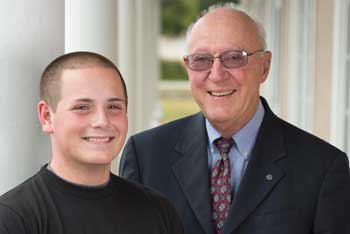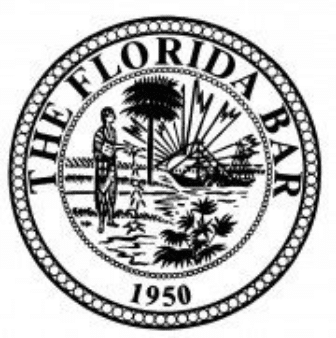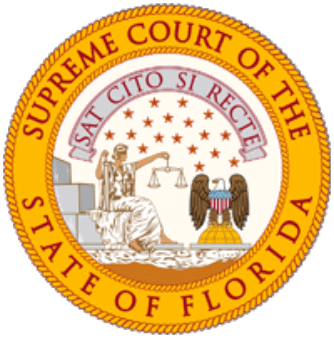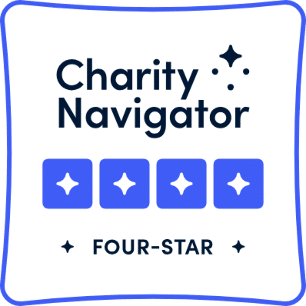
In spite of having a 3.7 high school GPA, serving as an ROTC Brigade Commander and having been selected for a highly competitive statewide youth leadership program, Trenton Miller says he’d never considered college until a volunteer lawyer showed him his options.
“I was just going to go into the Army and go that route,” said Miller, who is now headed for the University of Central Florida after an attorney volunteering with a Florida Bar Foundation-funded Children’s Legal Services project helped him pave a path from foster care to college.
Lawyers’ financial contributions to Children’s Legal Services through The Florida Bar annual fee statement have become increasingly important to such projects, with 30 percent of the funds for the Foundation’s 2014 Children’s Legal Services grants coming from Florida Bar members.
“Bar members have made a meaningful difference in the lives of Florida’s low-income kids, which we should all view as a source of great pride in our profession,” said Florida Bar President-Elect Greg Coleman.
“The Florida Bar Foundation considers Children’s Legal Services one of its most important programs. Everyone who contributes is playing an active role in providing legal representation to help foster children succeed and to enable disadvantaged children with special education, mental health and medical needs to access the services to which they are legally entitled.”
In Miller’s case, his early teenage years had been focused primarily on protecting his younger sisters from his mother’s alcohol and drug abuse, going to school and working 30 hours a week, mostly at fast-food restaurants. For months he went to Nar-Anon meetings at a church near his house in an attempt to find a way to help his mother stop using.
But not long after his mother’s boyfriend was arrested for domestic violence and the family had to go to a shelter, Miller, then 16, decided to call an abuse hotline to report his mom for exposing the girls to drugs and involving them in theft to support her habit.
Eventually placed in a group home, Miller wanted to live on his own and sought help from Brevard County Legal Aid, where the Independent Living Project matched him with pro bono attorney Ray Cornelius, a retired judge from New York and active volunteer trained through the project.
Cornelius came into the picture in March 2013 as Miller’s Attorney ad Litem and almost immediately made an important discovery. Although Miller had been in the group home since Dec. 31, he had never been adjudicated by the court as a dependent of the state, a mistake that could have ended up costing him some of the benefits available to current and former foster youth.
Cornelius went to court to correct the error, which the judge did by making the adjudication retroactive. Not long after that Miller faced yet another danger. When he was threatened at gunpoint by a fellow resident of his group home, suddenly his desire to live on his own became more urgent. But because the incident occurred just a few days before Miller marked six months in state care, he could have been found ineligible for the state’s Subsidized Independent Living program for youth capable of living on their own before their 18th birthday, as well as tuition and living expenses available to former foster youth after they age out of care.
Once again, Cornelius stepped in to make sure Miller was able to continue receiving state benefits while living on his own. At the same time, he opened Miller’s mind up to the possibility of college by explaining to him that the state would provide help with tuition and living expenses if he chose to earn a degree before going active duty in the military.
Miller plans to start college this fall after completing basic training over the summer. With a college degree, he will be able to take his military career much farther than he had originally planned.
Miller said being a “positive person” has helped get him where he is today, but he also recognizes that he didn’t get there alone.
“It took a lot of people working together,” he said. “Legal aid has changed my life. I’m going to go down a different path for my future than I would have, and in a more successful, effective way.”
Unfortunately, children’s projects like the one that helped Miller are being cut back due to a lack of financial resources.
Revenue from Florida’s Interest on Trust Accounts Program, still the primary source of funding for all of The Florida Bar Foundation’s grants, has plummeted as a result of near-zero bank interest rates since 2008, depleting the Foundation’s once-healthy reserve.
This has left much less funding available for grants. The Foundation initially cut funding to all of its general support grantees by the same percentage each year, including special project funding like Children’s Legal Services. Rather than make deep across-the-board cuts for the 23 children’s projects funded in 2013, this year the Foundation provided slightly reduced funding for a smaller number of grantees in an effort to preserve those projects that were the most impactful. Of 23 applications, only 17 were funded.
Most of the projects funded are at local legal aid or pro bono programs, but several grants went to statewide projects at organizations such as Florida’s Children First, Southern Legal Counsel and Florida Legal Services Inc. Two law school projects, the Statewide Foster Children’s Advocacy Project at the University of Miami, and the Health Care Access/Special Education Project at Florida State University, were also funded.
The bright spot is that contributions from Florida attorneys through The Florida Bar fee statement were up 28 percent from 2012 to 2013, with 3,309 attorneys contributing a total of $276,000.
“Supporting Children’s Legal Services is an easy decision to make, knowing that 100 percent of our contributions go directly to projects that help children in our communities,” Coleman said. “The Foundation does not deduct any administrative expenses, so kids get the full benefit. I’d love to see us notch up another 30 percent increase this year so as to save more of these projects until IOTA funding rebounds.”
How you can help give kids a chance at success
As a Florida Bar member, you can contribute to Children’s Legal Services projects three ways:
- By indicating a contribution to Children’s Legal Services on your 2015 Florida Bar Fee Statement and adding the donation amount to the fee statement total.
- By making an online donation.
- By sending a check payable to The Florida Bar Foundation, with Children’s Legal Services in the memo line, to: The Florida Bar Foundation, 875 Concourse Parkway South, Suite 195, Maitland, FL 32751.




